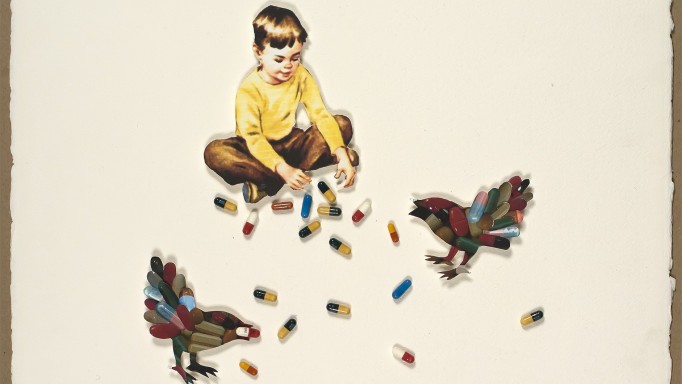Write a Comment
6 Comments
I have been taking 5,500mg a day of aspirin since I was diagnosed with HIV almost 10 years ago. At that time I was only 20, but I already had a bachelour's degree in biochemistry. I honestly have no had much in the way of gastrointestinal side effects. My physician suggested I take very high doses of Vitamin K along with it, 10mg (not mcg) a day, and I haven't had any rectal bleeding or anything. I have never needed to take ARVs.... so far at least. My viral load is +/- 1000 copies what it was 10 years ago. I have maintained a fairly stable viral load for 10 years or so now of about 23,000 +/- 1000. If I get a vaccination or am recovering from an infection it may go up a bit. My CD4 cells have ranged between 480-550, with my most recent results being 505. I have had my cytokine levels checked many times and my levels are all within normal ranges. The cytokines most correlated with an increase in disease progression, IL-6 and TNF-alpha are essentially undetectable in my blood plasma serum. The funny thing is people always tell me that I look so much younger than I really am. I am 30 and people seriously mistake me for 19 or 21 years old all the time. I think it has to do with the anti-inflammatory effects of aspirin. I'm just telling you my experience with aspirin, I couldn't say for sure if it was related to the aspirin or not or whether or not anyone else would get the same effects.
The forces that influence what particular research avenues are or are not pursued must be quite complex, but availability of funding is probably the most important. Who would fund an aspirin trial? When I was medical director at CRIA New York we did start an aspirin trial. We had excellent evidence that aspirin could inhibit HIV. Dr Kotler at St Lukes was the first to show this in patients treated with 5-ASA, a form of aspirin. Then I with Elena Klein and Michael Lange showed that aspirin could inhibit HIV replication in cultured lymphocytes from HIV infected people, as well as inhibit the TNF induction of HIV from a permanently infected cell line - ACH2. (These results were presented at the Yokohama international AIDS conference). Based on these results I started a study in patients. Our data safety monitoring board stopped the study because of stomach toxicity - which although mild and not unexpected, was of concern. The doses required to inhibit HIV, which we could work out from our in vitro experiments are high - about the same as is used to treat rheumatic fever. Because of gastro intestinal bleeding aspirin at this dose is not really viable. I'm sorry we were not able to go further with our trial, as it would have provided a proof of concept and an impetus to look for and study other drugs with a similar mode of action but safer, Coincidentally, at the very same time our in vitro results were being presented at Yokohama, a paper appeared showing that aspirin inhibited activation of a transcription factor that stimulates HIV replication. Science 12 August 1994: Vol. 265 no. 5174 p. 956 E Kopp and S Ghosh Inhibition of NF-kappa B by sodium salicylate and aspirin
It's hard to say what to make of it. Often times I look at research and wonder if the researchers are operating in their own little vacuum, where no one exists other than them. It's quite startling. It often seems like researchers are just totally unaware of any previous research that has been done on a particular topic.... that or they are maliciously trying to harm people. I find it so hard to believe that people who have gone to school for so long can be so ignorant of previous research. Aspirin, which will never get tested as a therapy for HIV, lowers plasma levels of almost all cytokines, the pro-inflammatory and the immunosupressive ones all at the same time. It's really a shame that they decided early on that the stomach toxicities outweighed any benefits, it's not like ARVs are without side effects. It's more likely that there was just no money in using aspirin as a therapy so they lost interest.
I too have been puzzled by some trials of cytokines. What can one make of this?: "A randomized, double-blind, phase I/II trial of tumor necrosis factor and interferon-gamma for treatment of AIDS-related complex (Protocol 025 from the AIDS Clinical Trials Group)". This was around 1992 - about the same time I was trying pentoxifylline to inhibit TNF production. Cytokines have multiple effects; I suppose the investigators justify trials by focusing on only one particular desirable effect and just hope its benefits will outweigh the undesirable ones. In the case of interferon it was known that in HIV disease interferon was not exerting its desirable antiviral effect against HIV - in fact increasing interferon levels were noted as HIV disease progressed, yet this did not deter investigators from injecting more. Only people co-infected with Hepatitis C could benefit, leaving others to only experience the undesirable effects of interferon.
Mr. Sonnabend, I like your article. It's not just interferon that is the problem though, it's the interleukins as well. They have been trying tirelessly for decades now to make IL-2 and IL-7 into anti-HIV immunotherapies and they have failed miserably. Increased levels of IL-2 and/or IL-7 are associated, in people with HIV, with increased risks of disease progression, increased risk of developing dementia, and increased risk of developing certain types of cancers. IL-7 levels specifically have been tied to an increased risk of dementia in those who are HIV+, but for some reason or another they continue to try and IL-7 as an immunotherapy for HIV. I don't know why. http://www.ncbi.nlm.nih.gov/pubmed?term=IL-7%20dementia http://www.sciencedirect.com/science?_ob=ArticleURL&_udi=B6T06-3Y45FCF-2T&_user=10&_coverDate=06%2F30%2F1995&_rdoc=1&_fmt=high&_orig=gateway&_origin=gateway&_sort=d&_docanchor=&view=c&_searchStrId=1751436090&_rerunOrigin=scholar.google&_acct=C000050221&_version=1&_urlVersion=0&_userid=10&md5=a325b6982bd77329e1efffa30f89c5c5&searchtype=a










Kenzorio
Very interesting... if nothing else, at least the importance of inflammation is being increasingly recognized as being important in the health of HIV-sufferers, even if it isn't recognized as a factor in the development of AIDS (yet). In fact, it seems the problem of inflammation is getting more and more press, also outside the HIV-field. In fact, inflammation is the center of attention in a lot of medical fields now. @James - wanna chat? My MSN is check27@live.dk
May 22, 2011